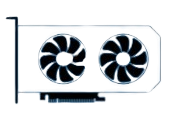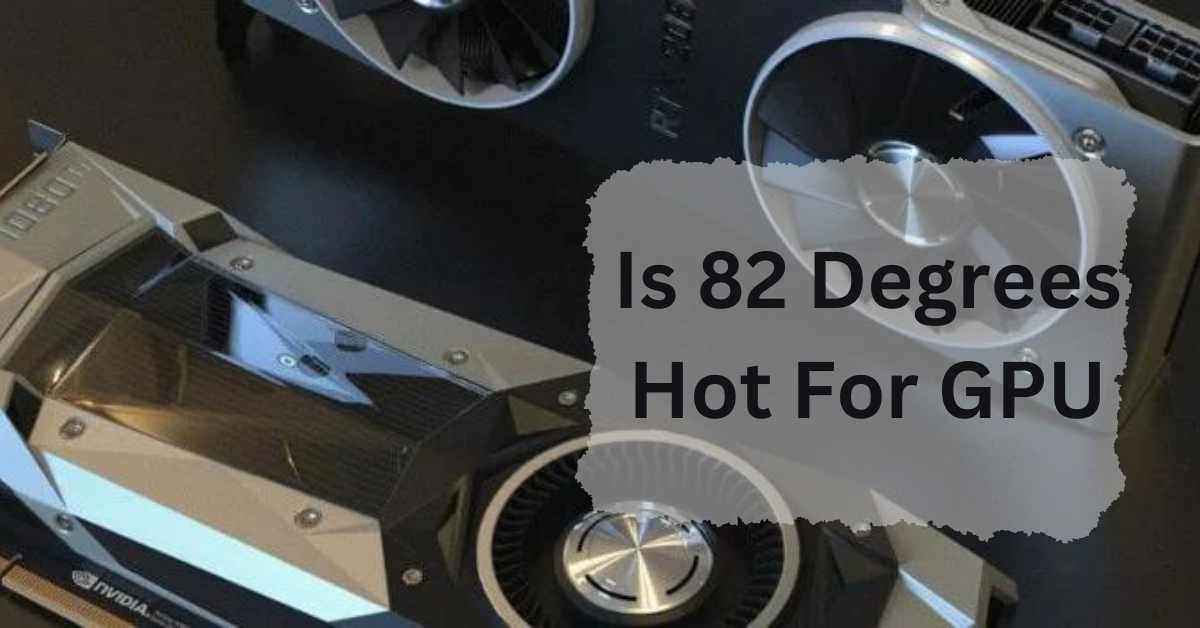When it comes to gaming or intensive graphic applications, ensuring your GPU runs at optimal temperatures is crucial. GPUs (Graphics Processing Units) are designed to handle heavy loads, but like any electronic component, they generate heat. A common concern among users is determining what constitutes a “hot” temperature for their GPU.
Yes, 82 degrees Celsius is a bit hot for a GPU but still safe. Most GPUs can handle up to 90 degrees or more. However, it’s better to keep it cooler if possible to ensure longer life and better performance.
In this article, we will discuss “GPU temperature” and also “Is 82 Degrees Hot For GPU”.
Table of Contents
Understanding GPU Temperature:
What is GPU Temperature?
GPU temperature refers to the heat produced by the graphics processing unit while it’s working. Just like any other component, GPUs generate heat when they’re active, and this heat needs to be managed to maintain optimal performance.
Factors Affecting GPU Temperature:
Several factors can influence your GPU’s temperature, including:
Workload: High-intensity tasks like gaming or 3D rendering can push your GPU to its limits, generating more heat.
Ambient Temperature: The temperature of your surroundings can affect your GPU’s heat levels.
Cooling System: The efficiency of your cooling setup plays a significant role in maintaining safe GPU temperatures.
Read: Is 100 GPU Usage Bad – A Complete Guide Of 2024!
Optimal GPU Temperature Range:
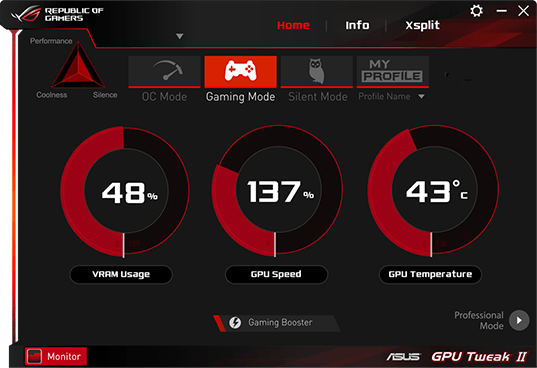
1. Ideal Temperature for Different GPUs:
Different GPUs have varying optimal temperature ranges. Typically, most modern GPUs operate safely between 60 to 85 degrees Celsius under load. However, it’s always best to check your GPU manufacturer’s guidelines.
2. Manufacturer Guidelines:
Manufacturers often provide specific temperature thresholds for their GPUs. For instance, NVIDIA and AMD usually recommend keeping GPU temperatures below 85-90 degrees Celsius for prolonged periods.
Why GPU Temperature Matters?
1. Performance Impact:
High temperatures can throttle your GPU’s performance, leading to lower frame rates and potential stuttering during intense tasks. Keeping your GPU cool ensures it performs at its best.
2. Longevity of the GPU:
Consistently high temperatures can shorten your GPU’s lifespan. Overheating can damage the internal components and lead to premature failure.
Read: Is 45 Celsius Hot For GPU – A Comprehensive Guide Of 2024!
Causes of High GPU Temperatures:
1. Heavy Gaming or Rendering:
Intense gaming sessions or rendering projects can cause your GPU to work harder, generating more heat.
2. Poor Ventilation:
A poorly ventilated case can trap heat, leading to higher temperatures. Ensuring good airflow is key to maintaining a cool GPU.
3. ust and Debris:
Dust buildup can clog fans and heatsinks, reducing their effectiveness. Regular cleaning can help keep your GPU cool.
Read: Is 60c Too Hot For GPU While Gaming – Ultimate Guide – 2024
Measuring GPU Temperature:
1. Software Tools for Monitoring:
There are various software tools available to monitor GPU temperatures, such as MSI Afterburner, HWMonitor, and GPU-Z. These tools provide real-time temperature readings and other vital statistics.
2. How to Read Temperature Data:
Understanding the data provided by monitoring tools is crucial. Look for temperature readings while your GPU is idle and under load to get a full picture of its thermal performance.
Read: What Is A Good GPU Temperature – Complete Guide – 2024!
Is 82 Degrees Safe for a GPU?
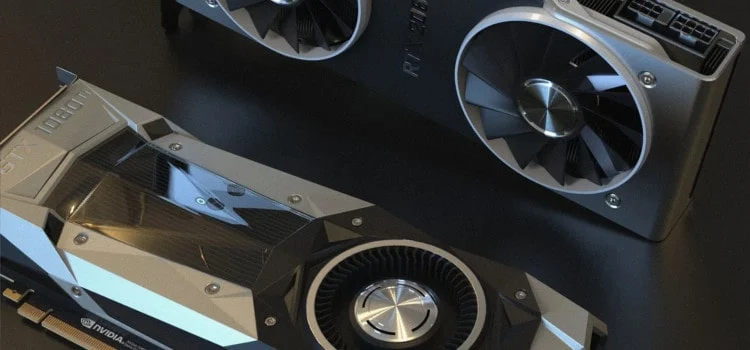
1. Comparison with Average Temperatures:
An 82-degree Celsius reading is on the higher end but still within the safe operating range for most GPUs, especially under load. However, maintaining lower temperatures is always preferable.
2. Expert Opinions:
Experts suggest that while 82 degrees is acceptable, consistently running at this temperature can be concerning. It’s important to ensure that your GPU doesn’t regularly exceed this range.
Read: Is 80 Degrees Celsius Hot For A GPU – Complete Guide – 2024!
Effects of 82 Degrees on GPU Performance:
1. Short-term Effects:
In the short term, running at 82 degrees can lead to slight performance drops due to thermal throttling. You might notice lower frame rates during peak performance times.
2. Long-term Effects:
Prolonged exposure to high temperatures can degrade your GPU’s components, leading to reduced lifespan and potential hardware failure.
Read: Is Cod CPU Or GPU Intensive – A Comprehensive Guide of 2024!
Preventing High GPU Temperatures:
1. Proper Cooling Solutions:
Investing in high-quality cooling solutions, like aftermarket coolers or more efficient case fans, can help keep your GPU temperatures in check.
2. Maintaining Airflow in Your PC:
Ensuring that your PC case has good airflow can significantly impact your GPU’s temperature. Arrange your fans to create an efficient airflow pattern.
Cooling Solutions for GPUs:
1. Air Cooling vs. Liquid Cooling:
Air cooling is sufficient for most users, but liquid cooling can offer better performance for those pushing their GPUs to the limit.
2. Aftermarket Cooling Options:
Consider aftermarket coolers if your stock cooling solution isn’t cutting it. These can offer improved thermal performance.
Read: How Much GPU Usage Is Normal – A Ultimate Guide Of 2024!
Cleaning and Maintenance:
1. Regular Cleaning Tips:
Regularly cleaning your PC can prevent dust buildup, which can impede cooling. Use compressed air to clean fans and heatsinks.
2. Importance of Thermal Paste:
Thermal paste helps transfer heat from the GPU to the cooler. Over time, it can dry out and become less effective, so reapplying thermal paste can help maintain good thermal performance.
Read: How Long Does GPU Last – A Comprehensive Guide Of 2024!
Overclocking and GPU Temperature:
1. Risks of Overclocking:
Overclocking can significantly increase your GPU’s temperature. Ensure you have adequate cooling before attempting to overclock.
2. How to Safely Overclock:
If you choose to overclock, do it incrementally and monitor temperatures closely. Stop and reassess if temperatures exceed safe limits.
Signs of Overheating:
1. Symptoms to Watch For:
Signs of overheating include system crashes, artifacts on the screen, and reduced performance. If you notice these, check your GPU temperature immediately.
2. Immediate Actions to Take:
If your GPU is overheating, reduce its workload, improve cooling, and clean out any dust. Consider seeking professional help if the problem persists.
When to Worry About GPU Temperature?
1. Critical Temperature Thresholds:
Most GPUs have critical temperature thresholds above which they will shut down to prevent damage. This is usually around 100-105 degrees Celsius.
2. Signs of GPU Damage:
Signs of damage from overheating include frequent crashes, visual glitches, and an inability to maintain stable performance.
How hot is too hot for GPU Fahrenheit?
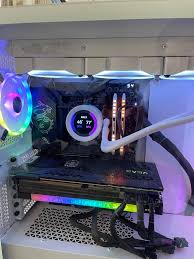
A GPU should stay below 185°F (85°C) to run safely. If it gets hotter, it might slow down or get damaged. Regularly check temperatures and clean dust from your computer to keep it cool.
How hot is too hot for GPU hotspot?
A GPU hotspot should not exceed 110°C. If it does, it may damage the GPU and affect performance. Keep your GPU cool with good airflow and clean fans to ensure it runs smoothly and lasts longer.
Read: Can Overclocking Damage GPU – A Ultimate Guide of 2024!
Is 80 degrees Celsius hot for a GPU?
Yes, 80 degrees Celsius is normal for a GPU under heavy use. It is not too hot but close to the upper safe limit. Make sure your cooling system works well to keep the temperature below this level to avoid any risk of overheating.
Read: What Is A Good GPU Clock Speed Mhz – Complete Guide – 2024!
Is it OK for my GPU to be at 80 degrees?
Yes, it is okay for your GPU to be at 80 degrees Celsius when in use. This temperature is normal for many GPUs under load. Just make sure your cooling system is working well to keep it from getting hotter.
Is 81°C a high temperature for a GPU?
Yes, 81°C is quite high for a GPU. While many GPUs can handle this temperature, it’s better to keep it cooler. High temperatures can reduce the GPU’s lifespan and performance. Ensure good airflow in your computer and consider using additional cooling methods if needed.
Is 82c hot for GPU?
Yes, 82°C is hot for a GPU. Although most GPUs can function at this temperature, it’s best to keep it cooler to avoid performance issues and longer-term damage. Ensure your system has good cooling and airflow.
Is 82 degrees hot for gpu laptop?
Yes, 82°C is hot for a laptop GPU. While it can work at this temperature, it’s better to keep it cooler to prevent performance issues and damage. Make sure your laptop has good cooling and airflow.
Is it normal for my GPU temperature to be at 80 Celsius?
Yes, it’s normal for a GPU to reach 80°C, especially during heavy use. However, it’s good to keep it cooler if possible to avoid long-term issues. Ensure your system has proper cooling and airflow to maintain lower temperatures.
Read: Is 70c Safe For GPU – A Ultimate Guide Of 2024!
Is 82 Degrees (C) too hot for a GPU on load?
Yes, 82°C is hot for a GPU under load. While it can work at this temperature, keeping it cooler is better for performance and longevity. Ensure your system has good cooling and airflow to help lower the temperature.
Read: What Is GPU Cache – A Complete Guide Of 2024!
Is 82 degrees hot for gpu gaming?
Yes, 82°C is quite warm for GPU gaming. While many GPUs can handle temperatures up to 85°C, it’s better to keep the GPU cooler. Regularly reaching 82°C might reduce performance or lifespan. Improve cooling or clean your PC to maintain lower temperatures.
Is 83 degrees hot for a GPU?
Yes, 83°C is hot for a GPU. While it can handle this temperature, it’s better to keep it cooler to avoid performance issues and possible damage. Make sure your system has good cooling and airflow to reduce the heat.
Is 85 too high GPU temp?
Yes, 85°C is quite high for a GPU. While it can handle this temperature, it’s best to keep it lower to prevent performance issues and damage. Ensure your system has proper cooling and airflow to help reduce the heat.
Safe Operating Temps for 3090 FTW3 Ultra?
For the 3090 FTW3 Ultra, safe operating temperatures are typically between 60°C and 80°C under load. While it can handle higher temperatures, keeping it in this range helps ensure optimal performance and longevity. Ensure good cooling and airflow.
Is 82 degrees hot for CPU?
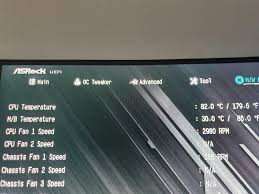
Yes, 82°C is hot for a CPU. While it can function at this temperature, it’s better to keep it cooler to prevent performance issues and potential damage. Ensure your system has good cooling and airflow to lower the heat.
FAQs:
How do I check my GPU temperature?
You can check your GPU temperature using software tools like MSI Afterburner, HWMonitor, or GPU-Z.
What is the maximum safe temperature for GPUs?
Most modern GPUs can safely operate up to 85-90 degrees Celsius, but it’s best to keep them below these temperatures for prolonged periods.
How can I lower my GPU temperature?
Improve your PC’s cooling by adding more fans, cleaning out dust, and ensuring good airflow. Consider using aftermarket coolers if necessary.
Does overclocking increase GPU temperature significantly?
Yes, overclocking can significantly increase your GPU’s temperature. Ensure you have adequate cooling before attempting to overclock.
What should I do if my GPU is consistently at 82 degrees?
If your GPU is consistently at 82 degrees, check your cooling solutions, clean out any dust, and ensure good airflow. Consider upgrading your cooling system if necessary.
Conclusion:
In conclusion, while 82°C is on the higher end for GPU temperatures, it’s generally safe for most graphics cards. However, consistently running at this temperature can affect performance and shorten the GPU’s lifespan. To ensure better performance and longevity, it’s best to maintain cooler temperatures with proper cooling and airflow.

I’m Noah Lucas, the voice behind the content you find here. With 5 years of experience in the GPU field, my goal is to provide clear and helpful information to everyone interested in this technology.
Whether you’re new to GPUs or looking to deepen your understanding, my articles aim to break down complex topics into simple, easy-to-understand language. This way, no matter where you’re from, you can find the information you need without any confusion.
